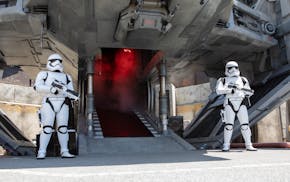Chapter 34 continued
The story so far: Thousands of starving miners in dozens of towns join the movement.
Katka wanted to write down his story the second he was out of sight, but another man hopped on the buggy and sat next to her. The interviews continued. The workers were unhappy with their jobs, but none she interviewed wanted to leave America. They simply wanted America to more closely resemble the America that had been in their dreams when they came over on the big ships.
By high noon, it was blistering hot. At each stop, the miners who emerged were dirtier than the ones at the previous mine. Their faces were stained with red earth and black smoke. The above-ground miners were especially exhausted, working in the burdensome heat. They heard the band before they saw the procession, put their shovels down, wiped their brows with their handkerchiefs and stood waiting when the march arrived. They quietly lined up in the parade, greeted with hearty pats on the backs, handshakes. At each mine, Katka reached into the back of the buggy and distributed soda pop bottles to the new additions. She continued her interviews while Lily drove the buggy. The baby lay next to her, sleeping and sweating in a wooden crate.
They marched all of June 6 and most of June 7. The parade stopped twenty-seven times, ending at the Hull-Rust mine in Hibbing, seventy-five miles from Biwabik, before turning back home. During the entire march, there had not been a single act of violence or aggression. Perhaps the old Polish man was wrong, Katka thought.
In the days that followed, marches and rallies continued on a smaller scale. Individual Range towns held protests and parades of their own. In Hibbing and some of the western Mesabi Range towns, strikers moved onto the Cuyuna Range. By the end of the first week, Katka published the first edition of Striker's News. The headline read: Every Worker's a Striker: 20,000 Walk Off Job In Grand Show of Solidarity. The paper was sold for five cents. Within two days her paper had raised $780 — sixty dollars for printing expenses and the rest for the Striker's Relief Fund.
Chapter 35
Katka kept close tabs on the goings on in town. If she couldn't be present to witness a new event herself, she interviewed people who had. And Paul was a great source of information. There was no absence of news.
In the second week of the walkout, the first trainload of forty replacement workers arrived from Duluth. They arrived not in Biwabik but in Virginia, a town twelve miles away, in the cover of darkness. They disembarked quietly and were greeted by Mr. Augustine Stone, several company bosses, the sheriff and the deputies from eight different towns. Sheriff Turner kept his hand on his gun and looked around for strike leaders. He saw none. It was 2 a.m.
As the men, thin and hungry, walked off the platform and assembled, they were each given ten dollars in coins. "You will earn five dollars per day, paid at the end of the week," Mr. Stone said. "We have purchased work clothes for you and they are waiting for you at Mrs. Johanson's boarding house. Her house is clean and less than a mile from the mine. She is a great cook and all eats will be provided. We will escort you to the mine in motorcars each day so you will be safe. There will be no need for you to walk. You will work eight hours per day with twenty minutes for lunch." Mr. Stone looked around nervously. "We best be going."
"Mr. Stone," one of the men said. "We been talking on the train. We want to be paid daily, not weekly."
"Ain't gonna happen," Stone said. "Let's get a move on." They walked from the train depot to Mrs. Johanson's boarding house. The armed deputies and mine bosses flanked the group, which arrived safely at the boarding house. Mrs. Johanson, a large Scandinavian woman whose husband had forgotten to send for her when he went to find alternative work in Minneapolis, had laid out meat and cheeses on her kitchen table. The food had been paid for from the healthy stipend the mining company gave her. The men ate voraciously and were shown to their rooms. Deputy Baker, who lived near the boarding house, would keep watch outside. Mrs. Johanson gave him a Thermos of hot coffee and some pastries.
Tomorrow: Chapter 35 continues.
Music Review: Anitta welcomes listeners into her 'Funk Generation' on new album
Ask Amy: Give up on estranged brother



